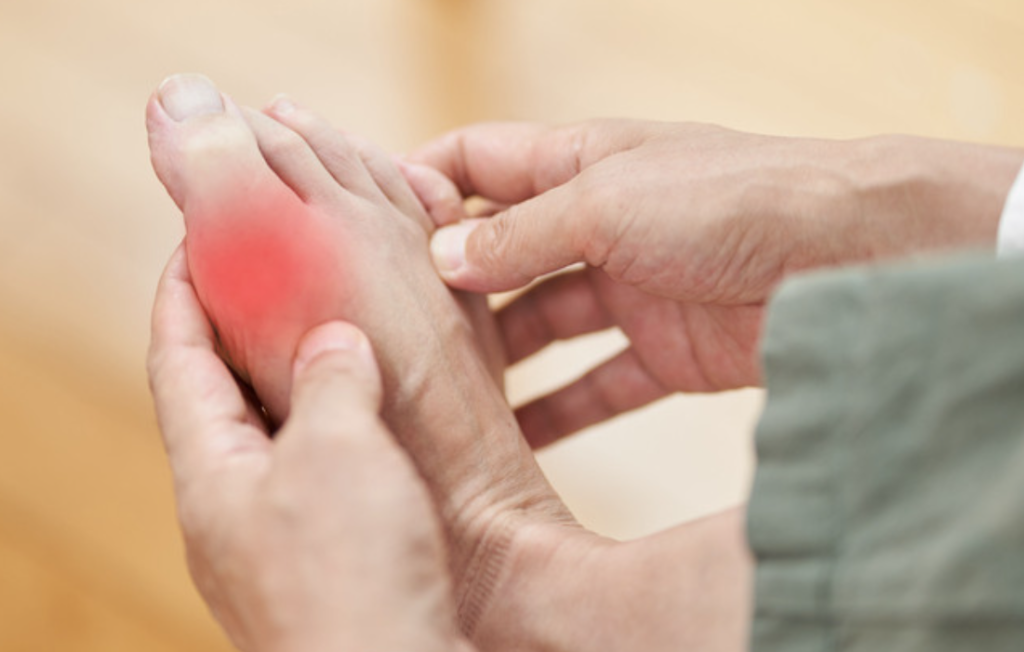Understanding Gout: An Overview

Gout, a form of inflammatory arthritis, emerges due to the excessive presence of uric acid in the bloodstream. When this uric acid crystallizes and accumulates in the joints, it leads to sudden, severe attacks of pain, swelling, redness, and tenderness, often targeting the big toe. While the exact cause of gout remains multifaceted, certain factors contribute significantly.
Causes of Gout Attacks

Several factors trigger gout attacks. Diet plays a crucial role, with high-purine foods, alcohol, and sugary beverages contributing to increased uric acid levels. Genetics, obesity, certain medications, and underlying health conditions also elevate the risk of gout.
Duration and Symptoms of Gout Attacks
A typical gout attack often lasts between 3 to 10 days, varying in intensity and duration. Symptoms include intense joint pain, inflammation, and discomfort, commonly affecting the joints of the feet and ankles. These attacks might recur and worsen over time if left untreated.
Symptoms During a Gout Attack
During an attack, individuals may experience excruciating pain, swelling, warmth, and limited mobility in the affected joint. The pain often reaches its peak within the first 24 hours, gradually subsiding thereafter.
Managing Gout Attacks: Relief and Treatment
Several strategies aim to alleviate gout attacks, including lifestyle modifications and medication. Rest, elevating the affected joint, applying ice packs, and over-the-counter pain relievers help mitigate the pain and inflammation. Additionally, prescribed medications like nonsteroidal anti-inflammatory drugs (NSAIDs) and corticosteroids provide relief.
Related: Lifestyle changes to reduce the risk of gout attacks
Ways to Relieve Gout Attacks
Maintaining a healthy diet low in purines, staying hydrated, and avoiding alcohol and sugary drinks can prevent future attacks. Long-term management may involve medications that lower uric acid levels and lifestyle adjustments.
Is Gout Curable?
While gout isn’t entirely curable, it’s manageable. Management involves a holistic approach, combining medication adherence, dietary changes, weight management, and consistent healthcare monitoring.
Lifestyle Changes and Long-term Management
Implementing dietary modifications, regular exercise, weight management, and adhering to prescribed medications significantly reduce the frequency and intensity of gout attacks.
Impact of Gout on Overall Health
Untreated gout may lead to complications affecting overall health, including kidney stones, joint damage, and chronic kidney disease. Managing gout effectively reduces the risk of these complications, promoting better overall health.
Gout and Its Implications
Understanding the correlation between gout and overall health emphasizes the importance of proactive management and lifestyle changes to prevent long-term health complications.
Visits and Consultations for Gout
Consulting healthcare professionals specialized in gout management is crucial. Various types of visits cater to different aspects of gout, including diagnosis, treatment, and follow-up care.
Types of Visits for Gout Management
Initial consultations, follow-up appointments, and emergency visits are essential in managing gout effectively. Routine check-ups help monitor uric acid levels and assess the progression of the condition.
Conclusion
Gout, while painful, is manageable through a holistic approach involving lifestyle modifications, proper medication, and regular consultations. Understanding the causes, duration, and management of gout attacks is crucial for enhancing overall health and preventing long-term complications.
FAQs
- Can gout be completely cured? Gout can’t be cured entirely but can be effectively managed with lifestyle changes and medications.
- Are there specific foods to avoid during a gout attack? Yes, high-purine foods like red meat and seafood should be avoided during gout attacks.
- Can gout affect organs other than joints? Untreated gout can lead to complications like kidney stones and chronic kidney disease.
- Is gout solely caused by diet? While diet plays a role, genetics and other health conditions also contribute to gout.
- What should I expect during a consultation at Amazon Clinic for gout? Expect comprehensive evaluations, discussions on lifestyle changes, and tailored treatment plans.





